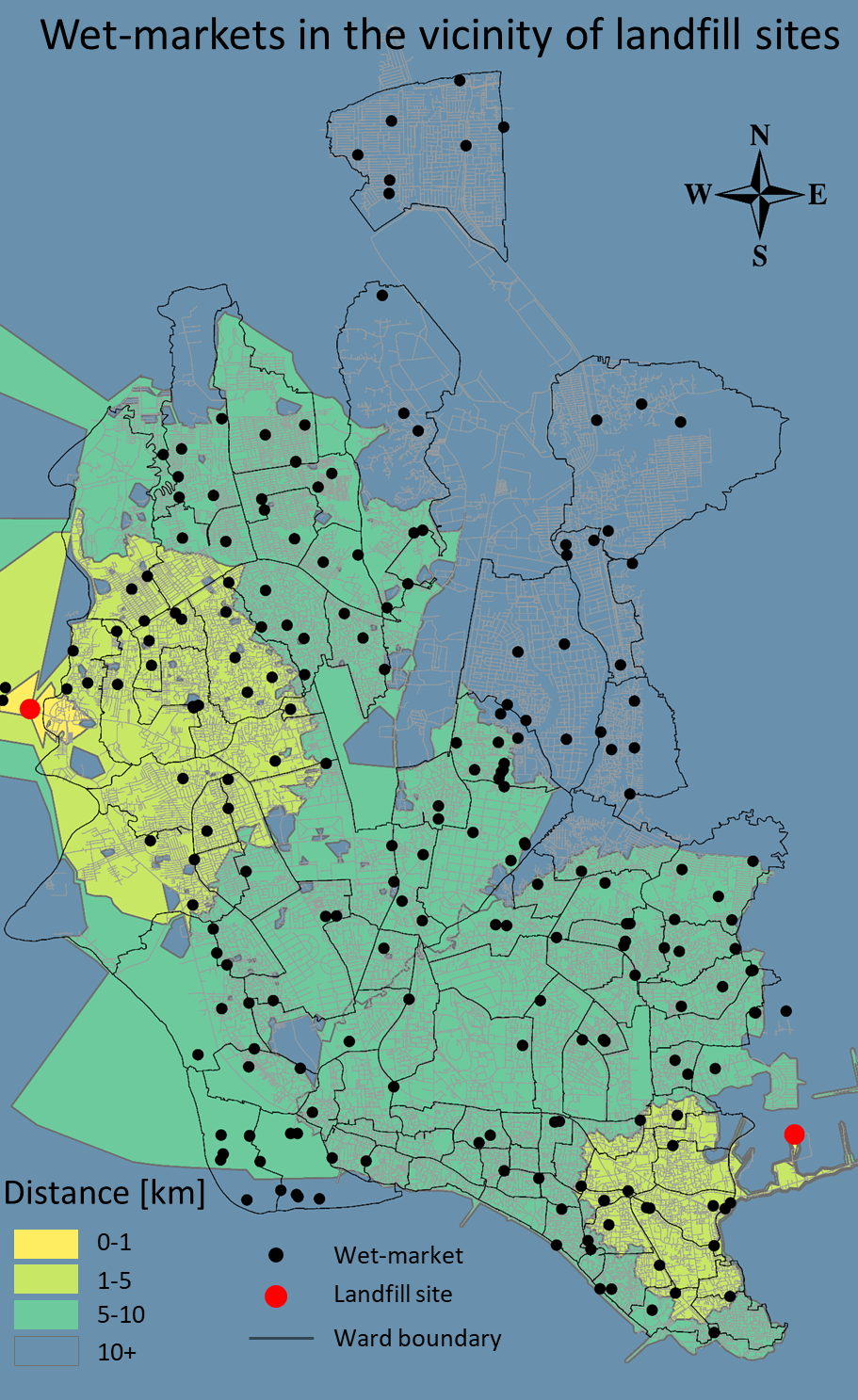All 21 million inhabitants of Dhaka produce a huge amount of waste every day. The wet markets alone produce 13.5 tonnes of waste daily, of which 11.5 tonnes is organic waste. Uncollected or improperly disposed waste causes significant health, social and environmental impacts on the population. These impacts include odour, traffic congestion, the spread of disease-carrying rodents, air and water pollution and an increased risk of fire. Yet there are only two official landfills serving the city: Amin Bazar (DNCC) and Matuail (DSCC). Although more land has been acquired to expand these existing landfills, they are expected to reach capacity within a few years due to increasing waste production and efforts to make waste collection more efficient. Waste disposal continues to grow and take up space in an ever-growing city. How can this problem be turned into an opportunity? How can waste be used as a potential?
There are many ways to treat waste, and anaerobic digestion is one of them. This biological process yields biogas, a mixture of methane and carbon dioxide, which can be used as a fuel for the generation of electricity. With 500 tonnes of organic waste in a biodigester you can generate just over 1000 kWh of electricity. 500 tonnes is what 37 markets produce together on a daily basis. Assuming that the wet-markets take their waste to the nearest landfill sites, then the waste from 104 markets ends up at the Amin Bazar landfill site and from 70 markets at the Matuail landfill site. This amounts to an average of 1400 tonnes of organic waste for Amin Bazar and 950 tonnes of organic waste for Matuail. A 200-tonne biodigester is planned at Matuail. This capacity can be amply served by market waste alone.
As land in the Dhaka Metropolitan Area is scarce, it is difficult to find space for a biodigester on or near to a secondary transfer station. The existing waste management setup of Dhaka City necessitates identification and implementation of alternate solutions to landfilling that are less costly and more sustainable in the long term. Decentralised processing of biodegradable waste of fresh markets by anaerobic digestion is economically interesting, as transport and landfill operation costs are strongly reduced. Moreover, it reduces greenhouse gas emissions.
Sources
- Voogt, J., Groenestijn, J., Schultze-Jena, A., Mohammed, S., Taylor, J., 2021, Feasibility Study on Anaerobic Digestion of Waste from Dhaka's Fresh Markets https://doi.org/10.5071/29thEUBCE2021-5BV.5.15
